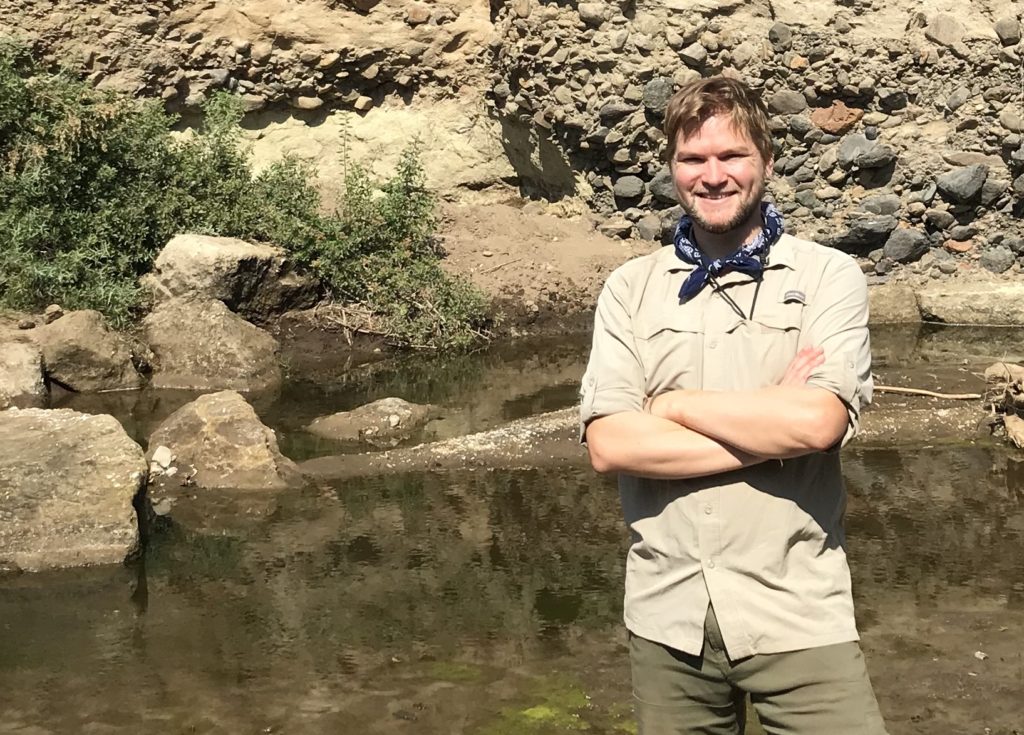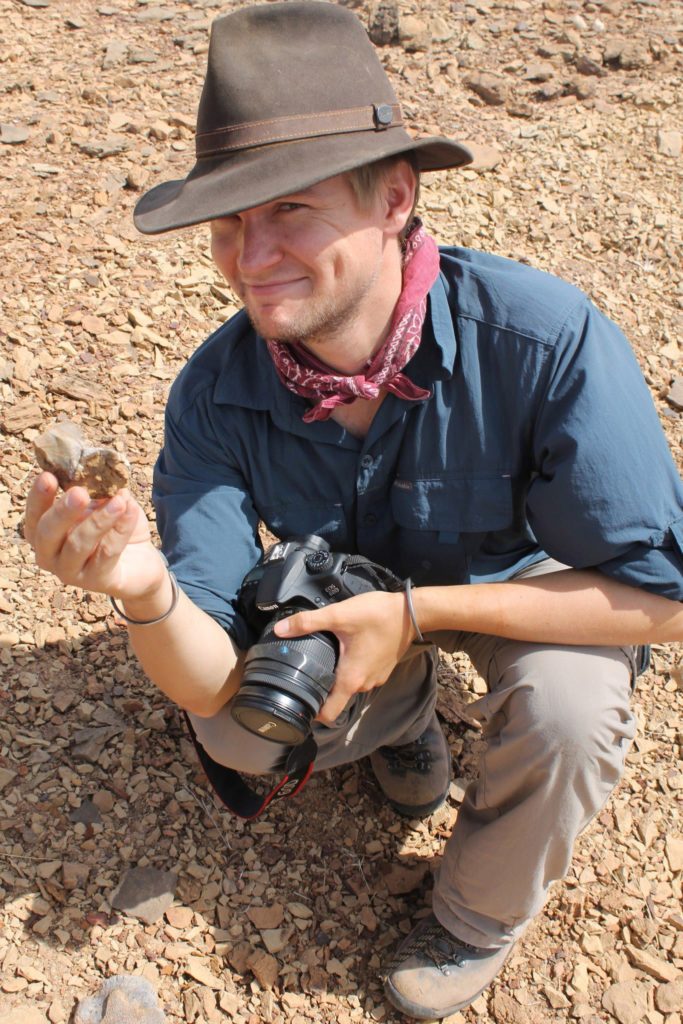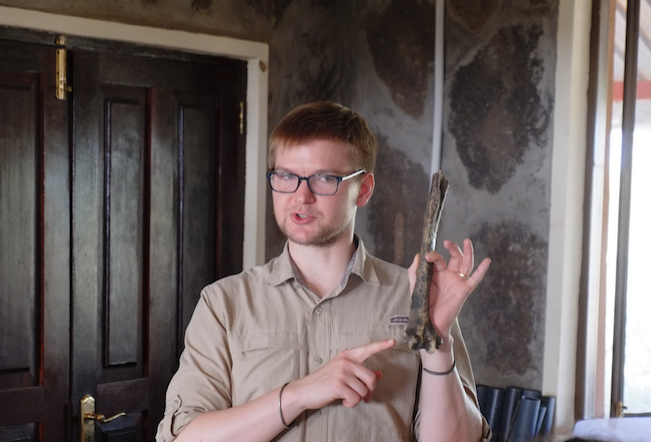
Matt earned his bachelor’s degrees from The Ohio State University (Geological Sciences and Anthropology) and his Ph.D. from Stony Brook University (Anatomical Sciences).
The Duke Lemur Center is delighted to announce the addition of Matt Borths, Ph.D., to the DLC staff!
Matt is a paleontologist who studies the evolution of animals in Africa, particularly the evolution of carnivorous mammals – including some of the oldest meat-eaters to chase down our primate ancestors! As the new Curator of the Lemur Center’s Division of Fossil Primates (DFP), he’ll oversee the DFP’s 30,000+ specimens – among them the world’s largest and most important collection of early anthropoid primates. The DFP’s skeletal specimens of extinct giant lemurs from Madagascar are also unmatched anywhere else in the world.
“The Duke Lemur Center combines two unique research collections under one research roof: the living lemurs that help us understand the origins of primate behavior and biology, and an extensive collection of fossils essential for understanding the evolution of lemurs and our direct primate relatives,” says Matt.
“The fossils housed at the DFP are essential for helping us understand what it means to be a primate. The more researchers can utilize them, the more we’ll learn about our primate roots.” To that end, Matt is committed making the Lemur Center’s fossil collections accessible to researchers at Duke and around the world.
As the co-creator of Past Time – a public education project using podcasts, blog posts, social media, and virtual classroom visits to teach non-specialists about the scientific process – he’s excited to collaborate with the DLC’s Education Department to open the fossil collections to members of the non-scientific community, too, in person and through virtual visits.
“One of the things that stood out during our search for a new Curator is that Matt’s energy and passion for fossil collections is so palpable,” says Greg Dye, Interim Director of the Duke Lemur Center. “He understands the tremendous value of the DFP’s collection and has the experience and ability to make it one of the most accessible in world. We’re so fortunate to have found someone of Matt’s skill and stature to lead this program.”
Welcome to the DLC, Matt! We’re very excited to work with you!

Matt has conducted field work in Egypt, Madagascar, Oman, Kenya, Tanzania, Wyoming, and North Dakota.

Prior to joining the staff at the DLC, Matt worked as a lab manager and a National Science Foundation Postdoctoral Research Fellow at Ohio University as part of the Rukwa Rift Basin Project.

